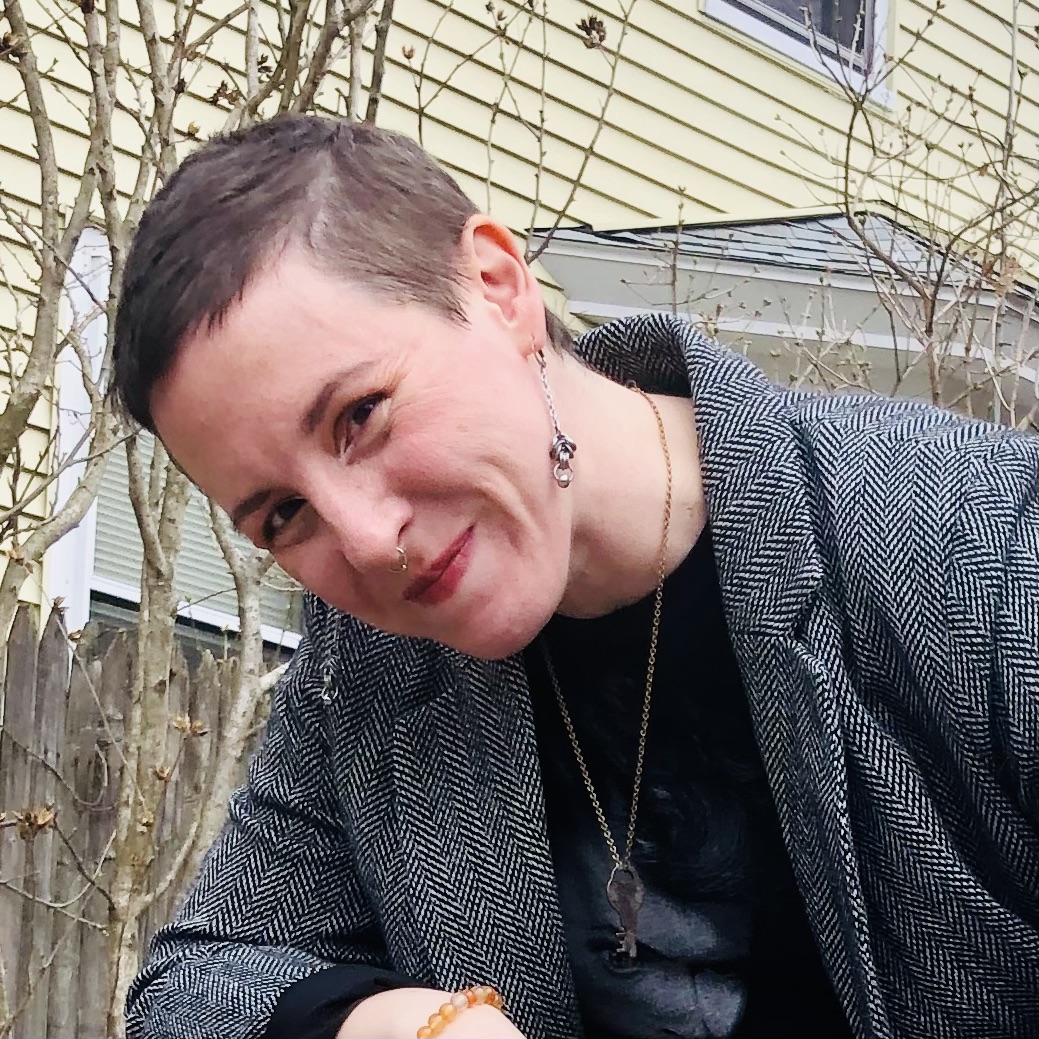
Reviewed by Erin Vachon
In the title story to Robert Shapard’s first full-length collection, Bare Ana and Other Stories (Regal House 2024), two expectant parents visit a tattoo studio above Honolulu Harbor to get a prenatal tattoo, “a priceless gift” for their unborn child. “It’s your identity at birth; it says your parents care.” Through the fresh lens of speculative metaphor, Shapard unpacks entrenched pre-birth identity rituals, like our world’s gender reveal party trend. An expectant mother, Ana is the rare human who walks the world bare of tattoos. (Arguably: trans icon.) She declares: “I don’t want my baby’s name tattooed on her like a label.” She rejects the identification determining a baby before their first breath. Meanwhile the narrator-father frets over the child’s first tattoo within the womb. If not a name, then a heart? A rose? Once Ana goes into labor, the delivery nurse is “not interested in the tat, but getting the baby into Ana’s arms,” while the doctor announces: “Congratulations. That’s a fine dragon.” Shapard’s writing shows that who we love often gets lost under the yoke of what we want them to be.
A spectrum of characters populates the prismatic flash in Bare Ana. Every story sings a surprise or a change of perspective. A couple honeymoons in Wakiki, but the husband falls off a twelfth-floor balcony. A young girl in a leotard flips an impossible set in front of a judges’ panel. A weather forecaster flies off – not to another television station – but on a renegade weather balloon.
The prose in Bare Ana always slices clean, critical of uninvestigated motives, while deeply compassionate toward the vulnerable at heart. In “Thomas and Charlie,” named after a character’s mispronunciation of “Tamazunchale,” two parents and a child drive to Mexico City on vacation behind a backfiring diesel. When the diesel slams into a pickup truck driven by “a village family,” the narrator’s parents fret in loops over helping, resorting to doing nothing at all: “‘They’ve got help,’ my father said. . . ‘They’ll call for help,’ my father said. . .’But what if there’s no telephone?’ my mother said. ‘How will they call for help?'” As the mother insists that offering aid will lead to blame, even arrest, the family drives on. The narrator, a child grown into adult remembering the trip, calls Tamazunchale “a few whitewashed houses in a dusty bend,” evading the whitewashed nature of the journey itself. He reflects, “I understood only that my mother and father were lost,” but neither does the narrator define a clear path of his own.
Shapard circles car accidents again in “Motel.” Two lovers smash into a motel room after a pickup cuts them off, disturbing a man sleeping inside. A new trio weighs a violent event: not parents and child, but two lovers and their witness. They drink bourbon to kill the trauma, disguising drinks they downed on the road. Alongside “Thomas and Charlie,” the characters stew over complicity, then wonder how to sneak out of blame. Shapard holds all three in a strange snow globe of time, strangers transformed into familiars, revealing how trauma tends to pull one another closer, isolated from the larger world.
Shapard’s sensitive hand at intimacy makes his love stories a specialty. In the beautiful “Aperçus,” lovers who’ve only known each other a month channel the concept of aperçu, instants of cosmic awareness for someone to consciously declare aloud: “This is the meaning of my life.” Andy asks Amanda to marry him, even still married himself, much to the world’s doubt. Shapard’s prose unfurls in Amanda’s opening consciousness: “The vision grew, a beautiful living lacework of natural patterns – the return of spring rains, the music returning. . .Is this the meaning of my life? she wondered. In the same moment, she realized that whatever the meaning of her life was, she had to choose. An aperçu couldn’t tell her what to do.” Shapard (and Amanda) turn toward love with deep generosity and vulnerability, allowing romance to bloom in ways both destined and chosen on the page.
But Shapard shows that decades-long love surges as warm as ever, if by a different shade. A long-married couple in “Cardinals” wait for a Viagra to work, overcome by a flock of female cardinals at the window and confused at the shade of their plumes. “I thought cardinals were red.” Maybe the birds know something humans don’t: “So cardinals divorce?” Their earned intimacy softens mutual concern, offering desire that blooms softer, but just as bright.
In “Two Phenomena of Roughly Equal Importance,” two lovers orbit each other like spacecraft in their thirties post-divorce, years after three dates in college. “He liked to kiss the inside of her knee. She couldn’t understand why, but was patient about it.” She feels “bitter and snarky” after her breakup, concerned that she silences her lover. While he plays at docking a ship inside her, she hopes for simultaneous breakthrough: “We have to dock together.” The trouble is: he’s already inside. Do objects in space fly by each other, perpetually alone? “Are you going to knock first?” she asks, then surrenders: “‘Never mind,’ she said, ‘I’ll just keep talking. . .Just keep…knocking.”
Shapard knocks one last time “At the Back Door,” turning capitalism into the desire engine to dangerous effect. Hoffpauer repossesses cars for the bank. The job pays him to snatch items from people who “can’t make payments without a job.” The bank is a greedy mouth, never satisfied. The bank wants “those small planes parked in potholed airstrips up and down the Mexican side of the border, and the bank wants them now, as in yesterday.” Hoffpauer gets “horribly beaten,” almost shot, and falls forty feet through the air. Capitalism keeps eating. When the knock comes, it’s for the unsuspecting reader: “Up the back steps, knock, knock, knock. Who could it be? You open the door.”
Shapard asks, “Will you answer?”
Pre-order Bare Ana and Other Stories (115 pages) from Regal House Publishing. Expected release date is February 18, 2025.
_____________________________
 Erin Vachon writes outside Providence, RI. They are the Multigenre Reviewer-at-Large for The Rumpus. Their writing appears in the Wigleaf Top 50, Black Warrior Review, SmokeLong Quarterly, The Pinch, DIAGRAM, Brevity, and The Anarchist Review of Books, among others. Their writing was nominated for The Pushcart, Best of Net, Best Microfictions, and Best Small Fictions. They were a SmokeLong Fellow for Emerging Writers, and they received an MA in English from The University of Rhode Island.
Erin Vachon writes outside Providence, RI. They are the Multigenre Reviewer-at-Large for The Rumpus. Their writing appears in the Wigleaf Top 50, Black Warrior Review, SmokeLong Quarterly, The Pinch, DIAGRAM, Brevity, and The Anarchist Review of Books, among others. Their writing was nominated for The Pushcart, Best of Net, Best Microfictions, and Best Small Fictions. They were a SmokeLong Fellow for Emerging Writers, and they received an MA in English from The University of Rhode Island.

 In September 2022 SmokeLong launched a workshop environment/community christened SmokeLong Fitness. This community workshop is happening right now on our dedicated workshop site. If you choose to join us, you will work in a small group of around 15-20 participants to give and receive feedback on flash narratives—one new writing task each week.
In September 2022 SmokeLong launched a workshop environment/community christened SmokeLong Fitness. This community workshop is happening right now on our dedicated workshop site. If you choose to join us, you will work in a small group of around 15-20 participants to give and receive feedback on flash narratives—one new writing task each week.